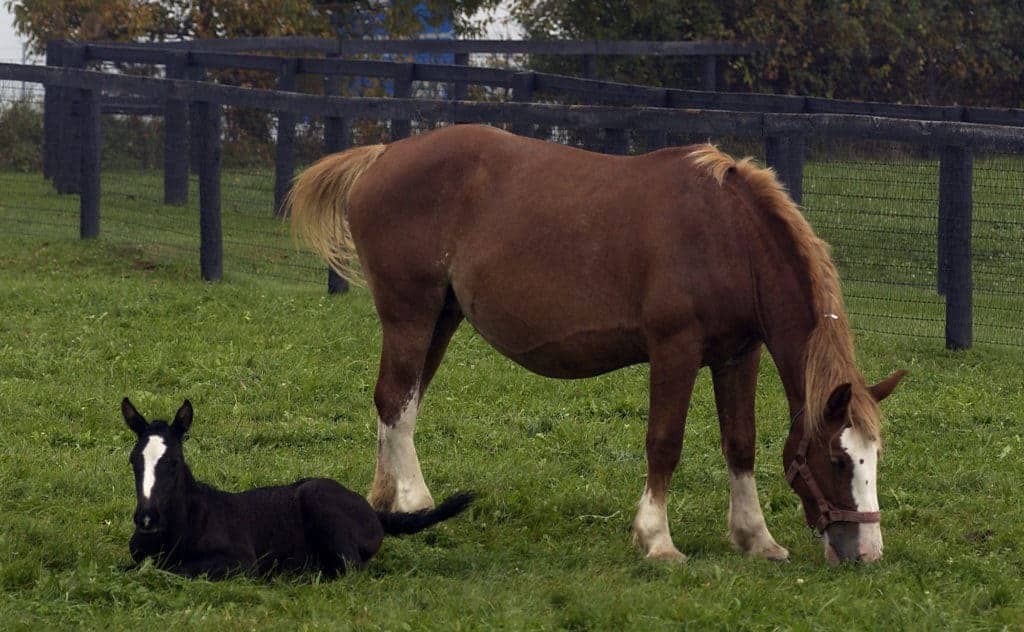UKVDL Researcher Evaluates Causative Agents of Abortion
Erdal Erol, DVM, MS, PHD, gave a lecture titled “Current microbiological methods for equine abortion diagnoses
Horse breeding from planning through foal care
Erdal Erol, DVM, MS, PHD, gave a lecture titled “Current microbiological methods for equine abortion diagnoses
Study revealed that exposure equine proliferativ enteropathy’s causative bacterium can continue into March…

Grade horses provide a great pool of genetic variation and generally lack many of the genetic diseases that currently can afflict purebreds.

Adjusting what a horse consumes can help prevent or squelch some equine ailments.

The 2011 Thoroughbred Pedigree, Genetics, and Performance Conference will be held Sept. 7-8 in Lexington, Ky.,

In the last two months of a high-risk pregnancy, this technique can help determine whether the unborn foal is healthy.
A stallion, several mares, and a foal have tested positive for equine viral arteritis at two French Lusitano
The International Collating Center, Newmarket, United Kingdom, and other sources reported the following
Utah State Veterinarian Bruce King, DVM, has officially released from restriction all previously quarantined

One of the most dangerous organisms that can sicken horses is the bacterium Clostridium difficile.
The Western College of Veterinary Medicine (WCVM) Large Animal Clinic has reopened its doors to all patients
Wyoming animal health officials have relaxed the stringent travel requirements implemented in that state in
Learn about flu, equine herpesvirus, and strangles respiratory disease at TheHorse.com/Webinars on June 30!

Flu, equine herpesviruses 1 and 4, and strangles commonly cause upper respiratory tract problems in horses with coughing, runny nose, and fever. How can you tell which one your horse has, and what can you do to prevent these diseases?
Horse owners in the western United States are coming to grips with an equine herpesvirus myeloencephalopathy (EHM) outbreak, and the entire industry seems to be involved in the equine herpesvirus-1 (EHV-1) discussion.
World animal health officials are monitoring the spread of an outbreak of the equine venereal disease dourine
Stay on top of the most recent Horse Health news with
"*" indicates required fields